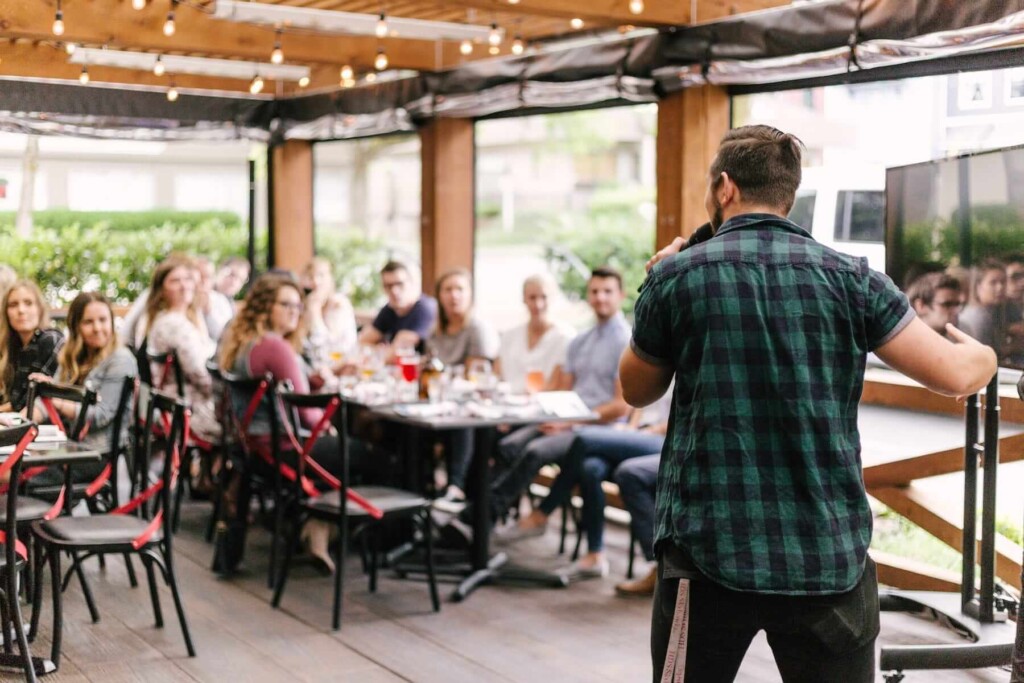In today’s fast-paced world, people are constantly seeking new ways to connect, learn, and grow. One of the most effective methods of achieving this is through the creation and nurturing of an events community. An events community brings together like-minded individuals who share a common interest or passion, fostering a sense of belonging, networking opportunities, and a platform for personal and professional development. This essay will explore the best ways to build an events community, including strategic planning, effective communication, and leveraging technology to its fullest potential.
I. Strategic Planning
- Identify the target audience: Clearly define the target audience for your events community by understanding their interests, needs, and preferences. This will help you tailor your events to better cater to their requirements and ensure a higher level of engagement.
- Set clear goals and objectives: Establish the primary objectives for your events community, such as promoting collaboration, knowledge sharing, or skill development. These goals will serve as a guiding framework for your community-building efforts.
- Develop a comprehensive events calendar: Plan a diverse range of events, including workshops, webinars, conferences, and social gatherings. This will ensure a rich and varied experience for your members and encourage their continued participation.
- Secure partnerships and sponsorships: Collaborate with industry partners and sponsors to provide financial support, resources, and expertise. These partnerships will enhance the quality of your events and attract a wider audience.
- Establish a budget: Allocate resources and funds to cover event expenses, marketing efforts, and community management. This will help ensure the long-term sustainability of your events community.
II. Effective Communication
- Create a strong online presence: Develop a user-friendly website and active social media accounts to showcase your events community and engage with members. Regularly update these platforms with relevant information, news, and announcements.
- Utilize multiple communication channels: Leverage email marketing, social media, and messaging apps to reach your audience and keep them informed about upcoming events and community news.
- Encourage member engagement: Promote open dialogue and feedback by facilitating discussions, Q&A sessions, and polls. This will help you better understand your members’ needs and preferences and foster a sense of belonging within the community.
- Recognize and appreciate members: Acknowledge and celebrate the contributions of your members, whether through social media shoutouts, event discounts, or exclusive access to certain events. This will encourage continued participation and foster a positive community atmosphere.
- Respond promptly to inquiries and concerns: Ensure that community members feel heard and valued by addressing their questions and concerns in a timely and professional manner.
III. Leveraging Technology
- Utilize event management software: Implement an event management platform to streamline the planning, promotion, and execution of your events. This will save time and resources and ensure a more seamless event experience for attendees.
- Integrate social media and networking tools: Incorporate social media platforms and networking tools into your events to facilitate communication and collaboration among members. This will help foster stronger connections and relationships within the community.
- Implement community management tools: Use community management tools to monitor discussions, moderate content, and manage member interactions. This will help maintain a positive and inclusive community environment.
- Offer virtual and hybrid events: Include both in-person and online events to cater to different preferences and ensure maximum participation. This will also help you reach a broader audience and expand your events community.
- Analyze and optimize: Regularly collect and analyze data on community engagement, event attendance, and member satisfaction. Use this information to refine your events calendar, communication strategies, and community management efforts.
In conclusion, building a successful events community requires a combination of strategic planning, effective communication, and the intelligent use of technology. By following these guidelines and consistently delivering high-quality events, you can create a thriving and engaged community that fosters personal and professional growth for its members.
